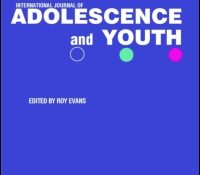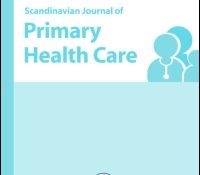eric.ed.gov har udgivet: This groundbreaking study finds that nearly all parents seek schools with a solid core curriculum in reading and math, an emphasis on science, technology, engineering, and math (STEM) education, and the development in students of good study habits, strong critical thinking skills, and excellent verbal and written communication skills. But some parents also prefer specializations and emphases that are only possible in a system of school choice. “Pragmatists” (36 percent of K-12 parents) assign high value to schools that, “offer vocational classes or job-related programs.” Compared to the total parent population, Pragmatists have lower household incomes, are less likely themselves to have graduated from college, and are more likely to be parents of boys. “Jeffersonians” (24 percent) prefer a school that “emphasizes instruction in citizenship, democracy, and… Continue Reading →
Like this:
Like Loading...
eric.ed.gov har udgivet: HIPPY targeted parents of children zoned to 100 Houston Independent School District (HISD) elementary campuses during the 2018-2019 academic year, which reflected an increase from 80 campuses the previous year. Academic performance of students whose parents participated in HIPPY was assessed using the kindergarten 2018 Logramos and Iowa assessments, the prekindergarten CIRCLE assessment, and the combined English and Spanish STAAR 3-8. HIPPY kindergarten students attained higher mean normal curve equivalent (NCE) scores on the Logramos reading and mathematics subtests compared to the district, and comparable Iowa mathematics subtest scores as the district. CIRCLE results revealed that the majority of HIPPY students met benchmark by EOY on English and Spanish mathematics subtests. However, by EOY, students’ performance fell below the district on most CIRCLE English math subtests. Students… Continue Reading →
Like this:
Like Loading...

tandfonline.com har udgivet en rapport under søgningen “Teacher Education Mathematics”: ABSTRACT ABSTRACT The aim of the current study was to examine the relationship between parent–child relationship and emotional regulation in adolescents across four countries regarding: (a) mother–child relationship; (b) father–child relationship; (c) adolescents’ emotion regulation; and (d) the relationship between mother–child/father–child close relationships and adolescents’ emotion regulation. Sex differences were also considered in the analysis. The sample of 270 Zambian, 216 Argentinian, 200 Ghanaian, and 180 Indian adolescents answered The Experience in Close Relationship Questionnaire and the Emotional Regulation Questionnaire. Results revealed cultural differences in the way adolescents perceived their relations with parents. Zambian adolescents were more likely to perceive their relationship as avoidant compared to Ghanaian, Argentina and Indian. Consistent with literature, Zambian and Argentinian adolescents who perceived their… Continue Reading →
Like this:
Like Loading...
eric.ed.gov har udgivet: Homes have remarkable possibilities to act as science learning environments for young children (3 – 6 years old). This qualitative case study investigated what kind of support parents need to do online science activities with their children at home. Data consisted of parent’s theme interviews (n=7). As a main result, a model of parents’ need for support was produced. The model contains three dimensions: 1) the affective dimension, 2) the knowledge and skills dimension and 3) the organizational dimension. Parents’ own affective experiences, organization of the experiments and finding time to do experiments are important factors to consider, when looking at parents’ willingness to engage in science activities with their children. The parents might not necessarily be content with only the child’s interest in experimenting as a… Continue Reading →
Like this:
Like Loading...
eric.ed.gov har udgivet: In this study, the expectations of middle school students’ parents regarding to “conceptual understanding and active student participation” “positive attitude and behavior attitude” and “authority and rule-oriented teaching” were examined. A valid and reliable threefactor instrument developed by the Aytekin, Baltaci, Altunkaya, Kiymaz and Yildiz (2016) was used in collecting parents’ expectations. 749 parents participated in the study. It was found that the variables of parental gender, parental age range, and monthly income of the parents, level of loving mathematics and level of helping the child have no significant effect on the expectations. The university graduates had less authority and rule-oriented teaching expectation than the remaining parents. Besides, it is seen that the 5th grade parents had higher expectations of conceptual understanding and active participation and positive… Continue Reading →
Like this:
Like Loading...
eric.ed.gov har udgivet: This article explores six effective principles for teachers to use to understand and apply “Minecraft” in today’s classrooms. Video games have become one of the fastest growing forms of media for youth and adult consumers. “Minecraft,” a multiplayer online game (MOG), is one of the most popular video games to date. By allowing its players to build simulated, virtual worlds, “Minecraft” aims to foster creativity, control, and imagination. Yet while the affordances of playing “Minecraft” spark collaborative learning, critical thinking, and problem-solving skills among youth, one constraint still remains: there appears to be a disconnect between some teachers’ and parents’ understandings about the “Minecraft” world’s mechanisms, uses, and benefits. Due to the success of “Minecraft” in the digital era and in some schools, studying this game is… Continue Reading →
Like this:
Like Loading...
eric.ed.gov har udgivet: This study details parents’ and students’ current thinking about math, science and technology (MST) education and their satisfaction with the existing curriculum which most experts see as vastly below world-class standards. The study finds just 25% of Kansas/Missouri parents think their children should be studying more math and science; 70% think things “are fine as they are now.” The report also explains why parents and students are so complacent in this area and what kinds of changes might be helpful in building more interest in and support for more rigorous MST courses. The findings are based on a random survey of 1,472 parents and 1,295 middle and high school students in Kansas and Missouri, probing their attitudes on math, science, and to a lesser extent, technology education.… Continue Reading →
Like this:
Like Loading...
tandfonline.com har udgivet en rapport under søgningen “Teacher Education Mathematics”: Whole-of-school approaches to supporting transgender students, staff, and parents Link til kilde
Like this:
Like Loading...
tandfonline.com har udgivet en rapport under søgningen “Teacher Education Mathematics”: Contact to the out-of-hours service among Danish parents of small children – a qualitative interview study Link til kilde
Like this:
Like Loading...
tandfonline.com har udgivet en rapport under søgningen “Teacher Education Mathematics”: ABSTRACT ABSTRACT This paper investigates educational resilience from the pupil’s perspective through an analysis of how Swedish pupils in grade six position themselves in relation to their parents’ expectations and the school’s grading practice. The term ‘resilience’ refers to pupils’ own views of their potential to learn and succeed in school in a social context, where parents are important as normative actors. Data consists of group interviews with pupils at three schools. By using a narrative analysis, a perspective is adopted that considers the multiple meanings involved when pupils position themselves in their stories about grades and parents. The analysis illustrates how a situated understanding of pupils’ senses of resilience makes family expectations, and the importance of pleasing yourself and… Continue Reading →
Like this:
Like Loading...



